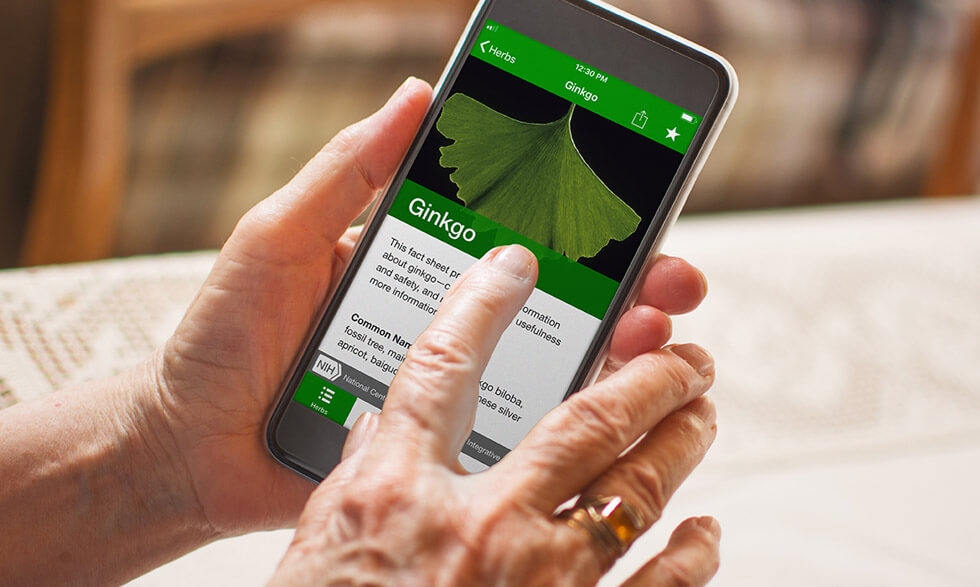Wandering down the vitamin aisle and have questions about a supplement? The National Institutes of Health (NIH) has an app for that.
NIH’s National Center for Complementary and Integrative Health (NCCIH) launched the HerbList™ app this summer.
The app uses research-driven NIH resources to provide overviews of more than 50 herbal supplements for everyone from consumers to health care providers.
We spoke to NCCIH to find out more.
Why did you decide to make the app?
“In a survey NCCIH conducted with the Centers for Disease Control and Prevention, we found that one in five Americans uses herbs or herbal supplements, spending nearly $13 billion in out-of-pocket costs annually,” said David Shurtleff, Ph.D., acting director of NCCIH.
“It’s important that people have the most up-to-date, evidence-based information on what we know about how it works, herb-drug interactions, safety information, and possible side effects,” added Dr. Shurtleff. “HerbList™ provides this information in an easy-to-use app.”
What can I learn from the app?
HerbList™ allows you to quickly access information about the science of more than 50 popular herbs and herbal supplements such as kava, acai, ginkgo, and turmeric.
What resources are on the app?
It features scientific, research-driven, unbiased information to help consumers make informed decisions about supplement use.
The app was built using NCCIH’s Herbs at a Glance, a series of fact sheets that provide basic information about specific herbs or botanicals. This includes common names, what the science says, potential side effects and cautions, and resources for more information.
How can you get the app?
HerbList™ is free. You can download it on your iPhone or iPad from the Apple App Store or to your Android device via Google Play.
When considering any herbal supplement or any complementary health approach, discuss it with your health care provider first.







